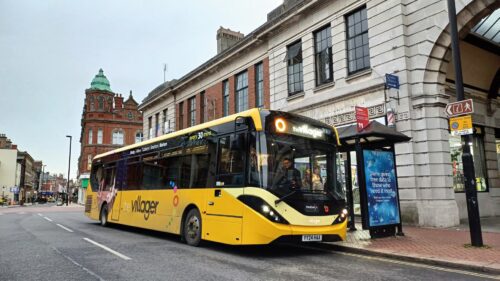
‘Bold investment’ in bus services could help to drive economic growth, research from the CPT shows
The Confederation of Passenger Transport (CPT) has submitted proposals to the Government’s Spending Review, emphasising that better buses are key to achieving economic growth and improving quality of life for communities across Britain.
At the CPT’s conference last month, the Minister for Local Transport Simon Lightwood identified buses as a vital tool to advance the Government’s mission of kickstarting growth and pledged to reverse a long-term decline in bus usage, and Ministers are introducing legislation to change the way buses are run in England, including allowing local authorities to franchise services, but to boost passenger numbers nationwide, these reforms need to be backed by money to invest in additional routes, frequencies and vehicles, as well as measures to speed up buses, says the CPT.
According to the CPT’s figures, the bus network in England outside London costs £3.5 billion to run annually, the majority of this funded commercially, including through fares, with the remaining costs paid in part through a combination of funding to bus operators and to local authorities. The CPT says that to keep services as they are requires a continuation of the current level investment from Government, which totals around £750 million annually. To make the Government’s bus ambitions a reality, however, the CPT is calling for a bold funding package that will go beyond maintaining the status quo, transform the nation’s bus network and deliver immediate, tangible benefits.
With an additional £205 million annually, or just over £500,000 per day, the CPT believes that local communities could benefit from buses travelling 36 million miles more each year. More importantly, the CPT says, it’s enough to improve the connections available to millions of people travelling to earn, learn or spend across England. The Confederation believes this would produce an estimated £500 million of economic benefits to passengers as well as reducing congestion, boosting local high streets and giving employers a wider pool of people to recruit from.
A further investment of £200 million a year in bus priority measures, such as dedicated lanes and traffic signal improvements, would speed up buses, making them cheaper to run and more attractive to use, the CPT believes. As well as generating £1 billion
a year in economic benefits and encouraging millions of additional passenger journeys, it says this would reduce the longer-term need for support from public funding. An additional £200 million per annum investment in zero-emission buses could release £500 million of private-sector investment annually, the CPT adds.
Director of Policy and External Relations at CPT Alison Edwards said: “Buses are a vital driver of growth, connecting communities to opportunity and delivering major economic and environmental benefits. With targeted investment, we can unlock a stronger, greener, and more inclusive future. A bold commitment from the Government will create better buses for everyone, with lasting benefits for passengers, businesses, and the wider economy.”

